You might have known about the technological innovations and marvelous benefits of EV’s for the owners and the environment. Today you will learn another aspect of owning an Electric Car and that is the HIDDEN COSTS involved. The cost has been a very important factor while choosing a car. With so many filters to narrow down our searches now, we have another variable added to the list that is the type of fuel the vehicle runs on. The cost of owning, running and maintaining a car as a whole contribute to this factor. This has been a debate as to learn if the electric cars are too expensive upfront, but this does not seem so true when seeing the introduction and acceptance of many EVs to the market.
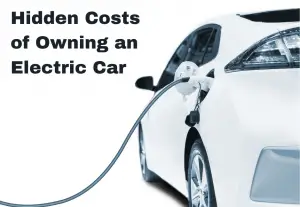
Hidden Costs of Owning an Electric Car
The past decade has proven how cost-effective these EV’s are as the numbers have risen dramatically. To add to the easy and effectiveness of owning and running an EV, a Home Charging Station can be installed recharging the car at the convenience of being at home at a very less rate being the cherry on the cake, and the total benefits don’t just end here. Looking past the environmental benefits, covering miles on an EV cost just a percentage of what the gas-powered vehicles do.
Electric Cars vs Gas Cars Cost
Let us compare Electric Cars vs. Gas Cars on cost basis:
The sale price
Whether it’s a brand new car or a used one, an electric car, or a fossil fuel-powered one, we are very much bent on the cost being the deciding factor. The price of a vehicle can depend on the location, brand of the car and its category. For instance, a four-door sedan, powered by gasoline the cost is about $35,000.
Let’s say that the payment is made in cash without any financing, attracting hefty taxes attached to it. Whereas, the $55,000 is the average cost of an electric vehicle for high-end electric vehicles like the Model S and Model X. Surprisingly, EV’s like Kia Soul, Nissan Leaf, and Chevy Bolt that cost below $35,000, defeat national average transaction price of gas-powered cars.
Electric vehicles are more expensive? We hear this a lot, but should we always trust what we here?
There is a whole lot of misinformation in regards to the initial and total costs of purchasing, running, and maintaining an electric vehicle today. EV’s are getting more affordable and cost-effective year over year. To be trusted one valid reason for misunderstandings about EV pricing is the type of EV’s available. Remembering back in 2008, when Tesla introduced a sports car as its fir daily driver’s car, the Roadster thus associating cementing the image of the brand as a luxury lifestyle brand. Since then, Tesla has hiked up the production volumes, introduced more premium models, including Model 3, while setting up the brand globally allowing the costs to go down.
Moreover, we are always comparing gas-powered cars and battery-electric cars. But to understand this better we have to understand how electric cars are being classified amongst themselves. Distinctively, there are three categories of Electric Vehicles relating to the lifetime ownership costs, different fueling figures, and maintenance costs across these categories.
1. Battery-Electric Vehicles
BEV specifically refers to any car that is exclusively powered by electricity only that is stored in batteries. Some examples of BEV’s include:
- BMW i3
- Chevy Bolt
- Chevy Spark
- Nissan LEAF
- Honda Clarity
- Ford Focus Electric
- Tesla Model 3
- Tesla Model S
- Tesla Model X
- Volkswagen e-Golf
- Hyundai Kona EV
- Hyundai Ioniq EV
- Kia Soul EV
- Mitsubishi i-MiEV
2. Plug-in Hybrid Electric Vehicles (PHEVs)
PHEVs are abundantly seen on road. PHEVs and BEVs are equipped with regenerative braking, recapturing the energy when braking or decelerating, to charge the battery. This energy would otherwise be wasted in a traditional gas-powered car.
3. Hybrid Electric Vehicles (HEVs)
HEV’s became known when Toyota released the Prius Hybrid. All plug-in electric cars are hybrids, but not all hybrids are PHEVs. Hybrid Electric Vehicles gas-powered vehicles but in addition, they are equipped with some electric components like regenerative braking. Toyota Camry and the Honda Civic are two common cars that do not use a plug to charge, but contain hybrid elements. Both the Camry and the Civic are available as standard gas and hybrid options.
Hidden Costs of Owning an Electric Car
The Operating Costs ( Cost to charge electric car )
As recorded in April 2022, the national average cost per gallon of gas was $4.19. Comparing this figure to the average cost per kWh was ¢14. Similar to MPG for gasoline-powered vehicles, Electric vehicles have kilowatts per hour per 100 miles. These two terms give up a direct comparison of the price of gas vs the cost of charging of an electric for similar usage.
The average gas tank holds 14 gallons of fuel costing drivers $58.66. Alternately, an electric vehicle holds a full charge at 50 kWh, taking 7.2 kWh/hour to charge. Consumers pay for electrical energy at a national average price of $0.14 per hour. This means the cost of a full charge is $6.86.
Breaking down the above-given data, the cost is $14.66 per 100 miles for a gas-powered car and $5.27 per 100 miles for an EV. On a direct scale running cost for EV’s is half to that of a gas-powered car. Not to forget that prices for electric energy on offer per hour can differ depending on the utility company and the cost slabs. Also differing during Peak Hour Usage that is somewhere around 4 PM and 9 PM.
It is important to note that pricing for power varies depending on your utility company and how they charge for power. For example, some utility companies charge higher Time-Of-Use (TOU) rates for things like “peak hour usage,” where the price of power is higher between 4 pm and 9 pm.
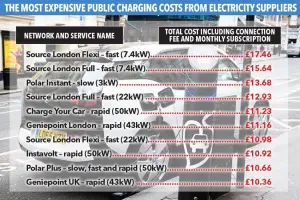
The maintenance cost of electric cars
One very popular benefit of an EV is that it has lesser moving parts, which makes it easier to maintain and more efficient, making it economic. An average of $8000 can be saved yearly in maintenance when owning an EV.
Hidden costs of owning an electric car
Automakers offer EV battery warranties for as long as up to 8 to 10 years ranging from 100000 to 150000 miles. For instance, a Nissan LEAF’s battery replacement costs around $5,499, in addition to installation, but if the battery proves to be defective, the owner gets the replacement done under warranty terms.
The average maintenance cost for electric cars could be around $350 per year if maintained properly. The main reason for this is that electric cars have far fewer moving parts than their gas-powered counterparts. For example, an electric car doesn’t have a combustion engine, fuel injectors, or a transmission. This means that there are far fewer parts that can wear out or require repairs.
Life costs
EV owners experiences state that charging at home is more convenient than visiting a gas station with saving time and money being the bonus. Workplace and public charging stations are adding up to the whole charging infrastructure.
Electric car charger installation cost
The purchase and installation of a networked Level 2 home charging station is an additional benefit with an upfront cost. There are subscriptions to sign up for plans, including quick installation by a certified professional as part of the package.
Charging stations come equipped with a special adapter that allows charge off the standard 120v powering the house. The initial costs of setting up and installing charging systems may be high, but the average cost of a mid-size PHEV is about $4000, less than that of a similar gas-powered sedan.
Depending upon amperage and features the range varies from $500 to $900 for setting up home charging systems. For EV Charger installation the price goes from $500 to $2000.
Government incentives for electric cars
The IRS states that the purchase of each new electric vehicle brings a minimum $2,500 tax credit that can go up to a hefty $7,500 depending on the car. A yearly average of $5000 can be saved in fuel and maintenance by switching to an electric vehicle.
Sadly, there are no savings associated with a new purchase of a gas-powered vehicle.
Brass Tax
EV owners switching from gas to electric, enjoy savings and benefits within the first six months of ownership. Financially comparing, even with extra expenses like buying and installing a charging system, electric vehicles are winners. Compound purchases may seem disheartening, but cost analysis of owning EV’s prove that their benefits are better financially and in terms of the wealth of our natural resources.

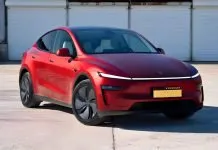
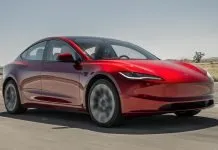














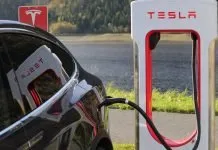

Did not address the increased rate of tire wear for EVs due to the extra weight. I’m exchanging all the tires nearly every 13-14,000 miles as compared to my previous sedan of 30,000 miles.
Who in heaven’s name pays $8,000 annually for maintenance of a gas powered car?
Yes, that was a big red flag when read this article.
1. How many mechanics jobs will be eliminated if there is less maintenance?
2. Federal and State gas tax is used for road and bridge maintenance and upgrading. The government and states WILL add a cost per mile for electric cars using the roads.